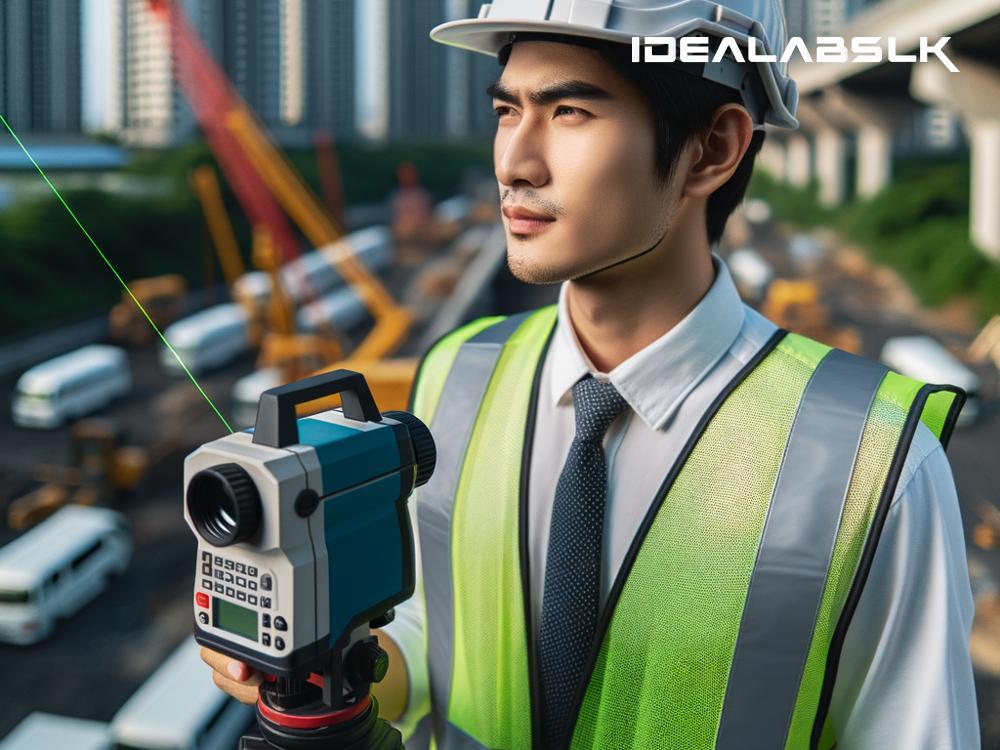How AI Enhances Precision in Laser Rangefinders: A Simplified Insight
In today's rapidly evolving technological landscape, devices and tools we use are becoming smarter and more accurate, thanks to the integration of Artificial Intelligence (AI). One device that has significantly benefited from AI is the laser rangefinder. Whether it's used in construction, forestry, golfing, or even in military operations, the precision offered by these devices can be crucial. Let's dive into how AI aids in making laser rangefinders incredibly precise and why this matters.
Understanding Laser Rangefinders
Before we explore the role of AI, let's briefly understand what a laser rangefinder does. Essentially, it's a gadget that measures the distance to an object by emitting a laser beam. When the beam hits the target, it bounces back to the device. By calculating how long it takes for the laser to return, the device can accurately determine the distance to the object. Sounds simple, right? However, achieving precise measurements can be complicated by various factors, such as atmospheric conditions, angles, and the nature of the target surface. This is where AI steps in.
The Role of AI in Enhancing Precision
1. Data Processing
AI excels at processing and analyzing vast amounts of data swiftly. When a laser rangefinder with AI capabilities emits a laser, it doesn't just measure the time it takes for the laser to return. It also considers environmental factors like temperature, humidity, and air pressure, which can all affect the laser's speed. By analyzing this data, AI can adjust the calculations in real-time, ensuring the measurement is as accurate as possible.
2. Eliminating Errors
One of the challenges with traditional laser rangefinders is errors caused by indirect paths. For instance, if the laser beam hits a reflective surface before reaching the target, it can lead to inaccurate measurements. AI can identify when the laser's path has been altered by analyzing patterns in the data. If the reflection pattern doesn't match with a direct path, AI can disregard that measurement and ensure only accurate data is used.
3. Adaptive Learning
AI isn't static. It learns and improves over time through a process called machine learning. Every time an AI-powered laser rangefinder is used, it collects data, learns from any measurement discrepancies, and adjusts its algorithms to become more accurate. This means the more you use it, the smarter and more precise it gets.
Why Precision Matters
The implications of precise measurements are vast and varied across different fields:
-
In Construction: Accuracy is paramount. Misjudgments in measurements can lead to structural weaknesses, safety risks, and financial losses. AI-enhanced laser rangefinders can significantly reduce these risks.
-
In Forestry: Estimating distances and heights with precision can help in planning and conservation efforts, ensuring resources are utilized efficiently.
-
In Sports like Golf: Even a small measurement error can affect the choice of club and strategy, potentially altering the game's outcome.
-
In Military Operations: Precision can be the difference between mission success and failure, where accurate distance measurements are crucial.
The Future is Bright
As AI technology continues to advance, we can expect laser rangefinders to become even more precise and versatile. The integration of AI doesn't just stop at enhancing accuracy; it opens up possibilities for new features, such as automatic target recognition and 3D mapping, which could revolutionize how we use these devices.
Wrapping Up
The integration of AI into laser rangefinders is a remarkable example of how technology evolves to meet our demand for accuracy and efficiency. By processing enormous amounts of data, eliminating errors, and continually learning and improving, AI helps ensure that the measurements provided by laser rangefinders are as precise as can be. This advancement not only aids professionals in various fields by allowing for more accurate and reliable data collection but also signifies a leap towards a future where our tools and devices are smarter and more capable. As AI continues to evolve, the potential for further enhancements in precision and functionality in laser rangefinders and beyond is boundless, bringing us to the cusp of a new era in measurement technology.

